Preserving the Fouta Djallon Highlands in Guinea, a region commonly referred to as the water tower of West Africa, harbouring the sources of the region’s largest rivers, brought together The Bridge Tank, Initiatives for the Future of Great Rivers (Initiatives pour l’Avenir des Grands Fleuves, IAGF), and the Senegal River Basin Development Organisation (Organisation pour la mise en valeur du fleuve Sénégal, OMVS), who together organized an official side event of the UN 2023 Water Conference on Friday 24 March, under the patronage of France and Guinea.
These forested highlands are more than ever at risk – endangered by the combined actions of populations left stranded by misdevelopment, livestock that needs more resilient practices, and the effects of climate change calling for agrarian and forestry adaptation within reach. This conference and the presence of high ranking government officials from France and Guinea, including Bérangère Couillard, State Secretary for Ecology, French Republic, and the chief of cabinet of Aly Seydouba Soumah, Ministre of Energy, Hydropower and Hydrocarbons, Republic of Guinea, as well as senior representatives from West African River Basin Organisations, like Soufiana Dabo, Guinea coordinator, OMVS and Bireme Hamid Abderahim, Executive Secretary, Niger Basin Authority, and development actors active on the ground offered a unique opportunity to raise the alarm and call for concerted action.
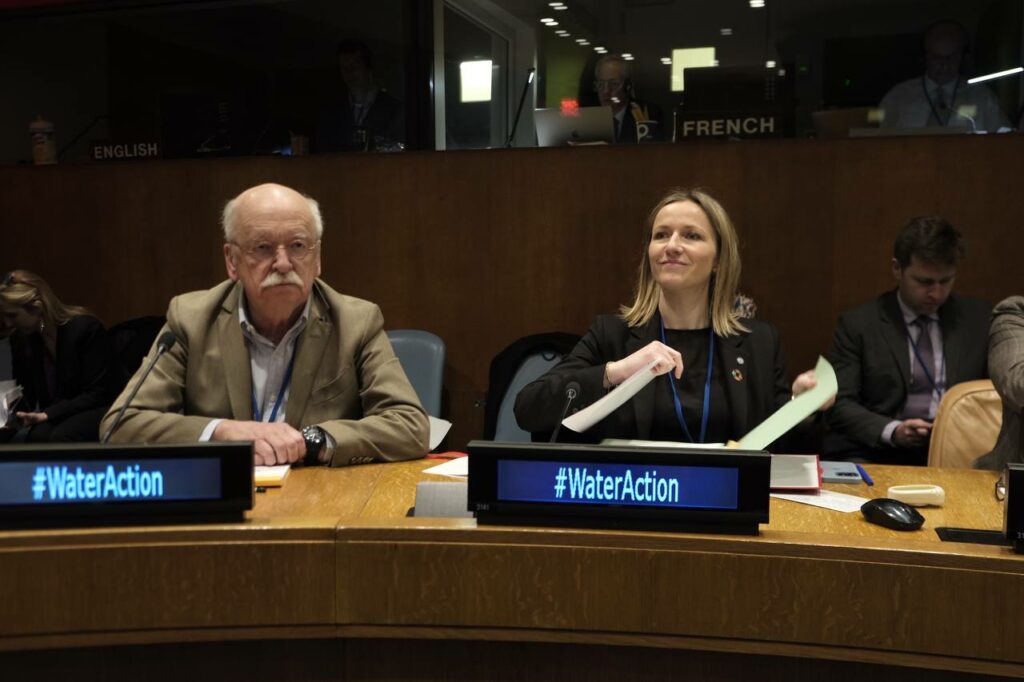
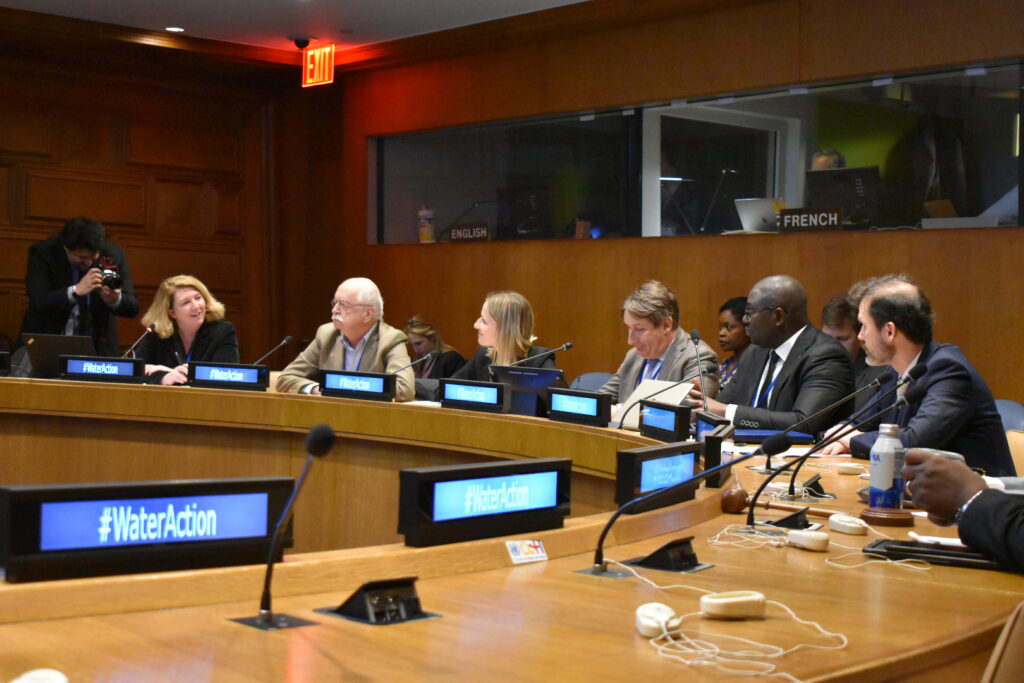
Opening the session as keynote speaker, Bérangère Couillard, State Secretary for Ecology, France, stressed the importance of protecting the Fouta Djallon and the sources of West Africa’s largest rivers, and reminded the audience of France’s central role in developing integrated water resources management.
Erik Orsenna, President, Initiatives for the Future of Great Rivers, made a passionate plea for action to preserve these forested ecosystems which provide water to a region home to 300 million people. He particularly emphasized the importance of river basin organisations in preserving peace and generating transboundary cooperation as the region battles with increasing hydric-stress.
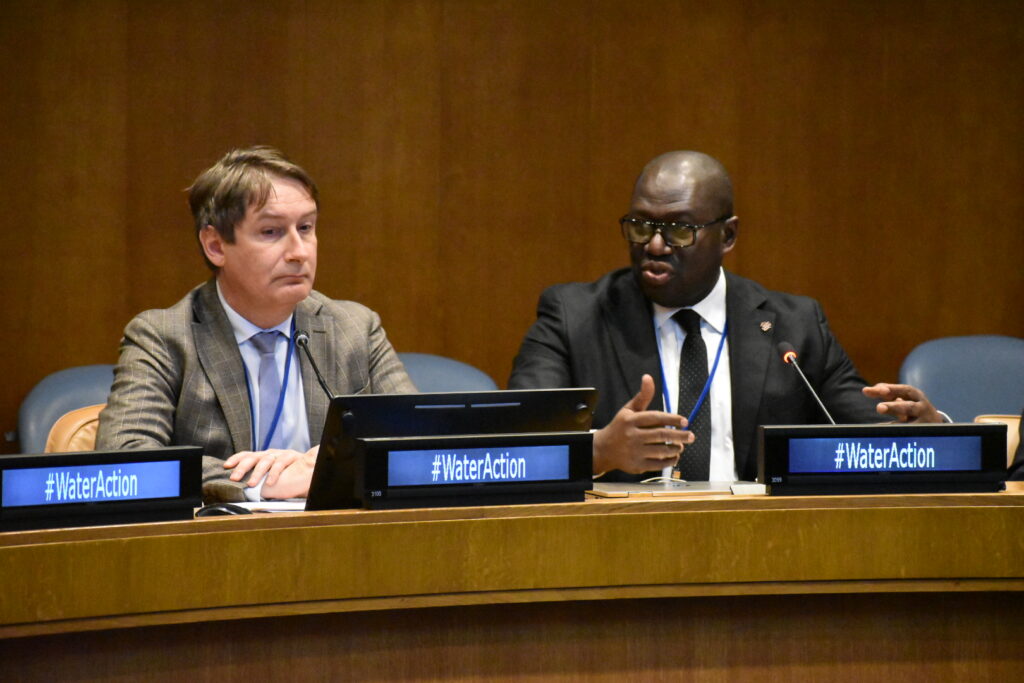
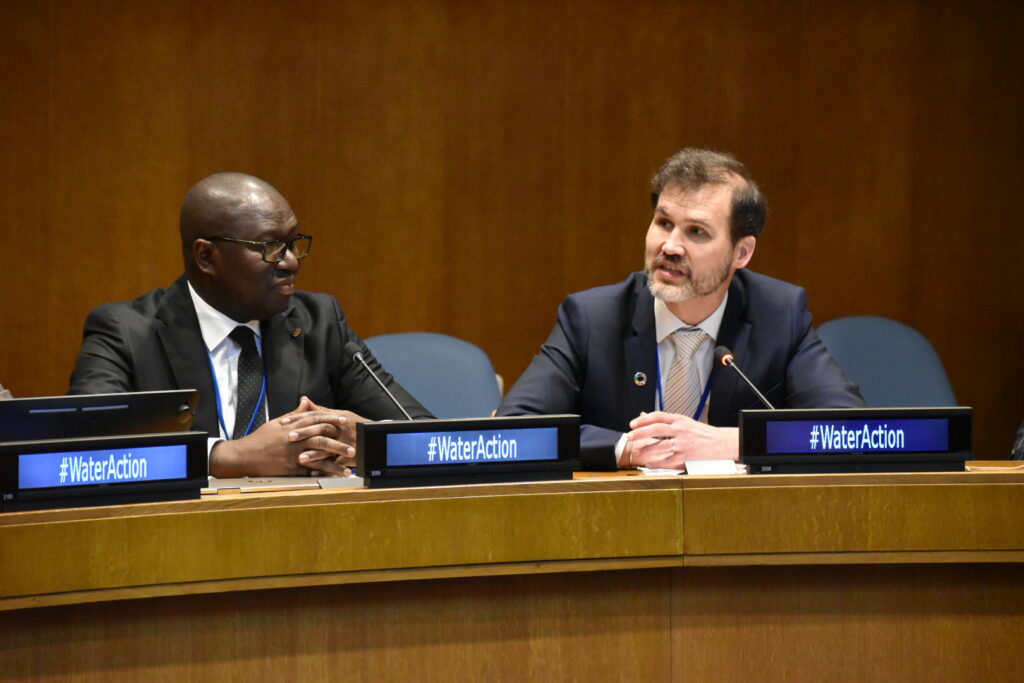
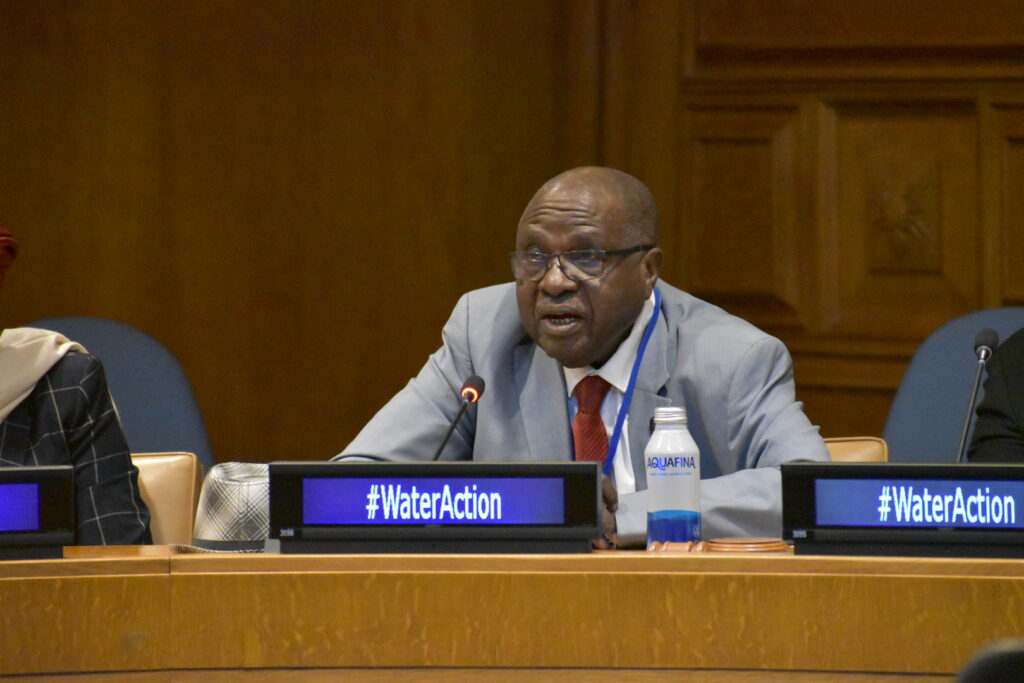
Representing such an RBO which has contributed to development and cooperation in West Africa, Soufiana DABO, Guinea coordinator, OMVS, introduced the specific context of the Fouta Djallon and the risks weighing upon its sources, from deforestation to siltation of watercourses and obsolete agricultural practices.
Lionel Goujon, Head of Water & Sanitation at the French Development Agency presented the existing initiatives and actions already carried out on the ground, particularly in partnership with the region’s River Basin Organisations.
Joel Ruet, President, The Bridge Tank, introduced a roadmap of solutions to safeguard the Fouta Djallon, including the need to involve young local technological entrepreneurs, training local populations, and mobilising green finance to scale up actions of the ground. The importance of mobilising local populations with their knowledge and nature-based solutions was also highlighted by the Executive Secretary of Niger Basin Authority, Mr Abderahim Birémé Hamid.
This side event organised inside the United Nations Headquarters was placed under the patronage of Guinea and France, and was supported by the French Development Agendcy (Agence Française de Développement, AFD), the French Water Partnership, the International Network of Basin Organizations (INBO), the Geneva Water Hub and the Chair Technology for Change of École Polytechnique.

